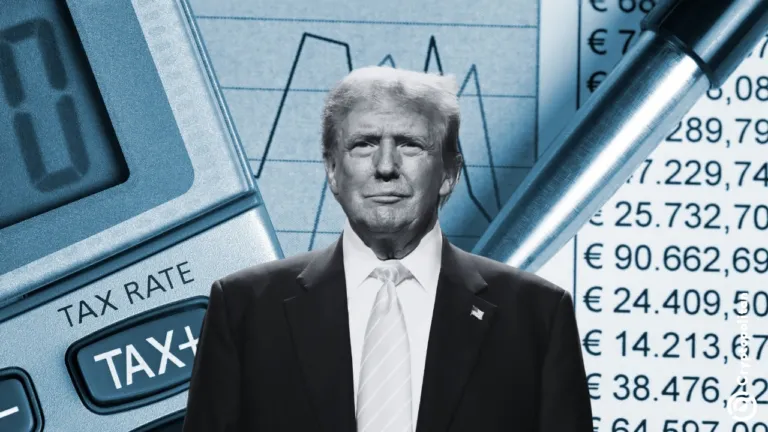German Authorities Shut Down 47 Crypto Exchanges Amid Money Laundering Allegations – Bitcoin Faces Selling Pressure
- In a significant crackdown, the German Frankfurt Public Prosecutor’s Office and the Federal Criminal Police Office (BKA) have closed 47 cryptocurrency exchanges suspected of facilitating money laundering activities.
- The BKA identified these platforms as deliberately circumventing “Know Your Customer” (KYC) protocols, including identity verification and background checks.
- Among the shuttered exchanges were notable names such as Xchange.cash, 60cek.org, and Baksman.com, ranging from long-standing platforms since 2012 to new entries from the past year.
Germany’s decisive actions target illegal crypto exchanges to stem money laundering risks, illustrating a crucial blow to the infrastructure enabling these activities.
Major Cryptocurrency Exchanges Closed in Germany
The crackdown by German authorities marks one of the most significant efforts to mitigate the misuse of cryptocurrency platforms for illicit activities. Among the closed exchanges were Xchange.cash, 60cek.org, and Baksman.com. The operations of these exchanges were diverse, with some having been active since 2012, while others had just commenced within the past year. The authorities have also seized substantial customer and transaction data as part of the ongoing investigation.
Deliberate Non-Compliance with KYC Requirements
The investigation revealed a persistent non-compliance with KYC regulations across these exchanges. The BKA stressed that these platforms intentionally bypassed essential customer identity verification and background checks, enabling illegal transactions and money laundering activities. This blatant disregard for regulatory norms has exacerbated the challenge of tracking and prosecuting involved individuals, many of whom reside outside Germany in countries where such crimes are either tolerated or inadequately policed.
Strategic Shift to Weakening Illicit Infrastructure
Given the difficulty in prosecuting perpetrators who operate outside German jurisdiction, authorities have shifted focus towards dismantling the infrastructure that enables these unlawful activities. Rather than attempting the nearly impossible task of bringing these criminals to justice, the strategy is to weaken the operational capabilities of these illicit exchanges by targeting the foundational structures that support them. This approach aims to disrupt the seamless flow of illegal transactions facilitated by non-compliant crypto platforms.
Impact on Bitcoin and Broader Cryptocurrency Markets
The consequences of such regulatory actions have had far-reaching impacts on the cryptocurrency markets. Earlier this year, the BKA seized 49,857 Bitcoin from the operators of the now-defunct Movie2k.to website, which was taken down in 2013 for copyright violations. The seized Bitcoin, valued at approximately $2.1 billion at the time, was sold off in July, causing substantial market fluctuations due to the resultant selling pressure. This incident underscores the volatile nature of cryptocurrency markets and the significant impacts regulatory actions can have on them.
Conclusion
The closure of 47 cryptocurrency exchanges by German authorities serves as a stern warning to the industry about the ramifications of non-compliance with regulatory standards. By targeting the operational frameworks of these illicit platforms, Germany aims to stem the tide of money laundering and other illegal activities facilitated by cryptocurrencies. As the regulatory landscape continues to evolve, the cryptocurrency market must adapt to ensure adherence to legal standards and mitigate the risks posed by such stringent enforcement actions.
Disclaimer: The content of this article solely reflects the author's opinion and does not represent the platform in any capacity. This article is not intended to serve as a reference for making investment decisions.
You may also like
Have financial markets reached peak uncertainty?
Share link:In this post: Trump’s unclear April 2 tariffs and new policies have pushed markets into peak uncertainty. Fed officials and investors have little confidence in economic forecasts right now. Most S&P 500 losses came from big tech stocks, while the rest of the index is holding up.
Starlink and Italian government’s deal has stalled, in disapproval of Musk’s Doge role
Share link:In this post: Discussions between government and Starlink halted on security concerns and Musk’s role in the Trump administration. Opposition politicians questioned the logic of engaging a foreign business over sensitive matters. However, there are chances negotiations may resume
Trump’s proposed 200% tariff on European liquor imports stokes worries among California’s winemakers
Share link:In this post: Trump’s proposed 200% tariffs on European wine worry California winemakers already struggling with low demand and crop losses. Large companies may benefit from refunds, but smaller wineries fear disrupted sales and distribution. Some see potential benefits for U.S. wines, but many fear economic harm if European alcohol prices skyrocket.
Trump’s economic policies put $5,000 DOGE dividend checks on hold
Share link:In this post: Trump delays DOGE dividends, prioritizing tariffs and tax cuts over $5,000 stimulus checks. Economists warn that cash payouts may worsen inflation. The plan’s future depends on the country’s economic performance.

